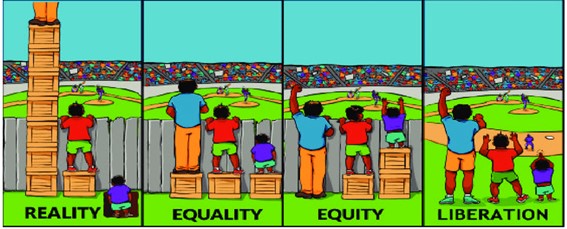We, the Agnus Dei Lutheran faith community, acknowledge that we gather each week on the traditional homelands of the Puyallup People (spuyaləpabš), a Coast Salish Lushootseed (txʷləšúcid) speaking People. The Puyallup People have lived along these shores for thousands of years, faithfully stewarding these lands and waters, as they continue to do today. The earliest Native residents, a branch of the Swift Water People (sxʷəbabš ), called this land txʷaalqəł, and their longhouse was within walking distance of our church. This land acknowledgment is one step toward engagement and true solidarity with the Puyallup Tribe. We commit to uplifting the voices, experiences, histories, and concerns of the Puyallup--and of all Indigenous Peoples--and to being good stewards of the land and water which surround us.
We have participated in the Gig Harbor Juneteenth event sponsored by Gig Harbor 4 Racial Justice held on the federal holiday each June. Music and holding racial justice signs are featured.

Rev. Benjamin Wayman suggests that, “The people of God are a people of protest. Christians in America should see protest as part of our necessary proclamatory action that Jesus is Lord in a world that lives otherwise. We protest people who disparage the image of God in other human beings. We protest policies and practices that fall short of love of neighbor. We protest systems and patterns that privilege some and exploit others. We protest the politics of a world that killed the author of life and is set on killing his disciples. The politics of God’s kingdom is at odds with the politics of this world, which is why protest is a holy practice of God’s people. Christian protest witnesses to the reality that all is not well in our world, and it announces the good news that the kingdom of God is near. The whole of Christian life is a witness in protest. In this sense, the church doesn’t protest; the church is a protest.
(from an article “Why do Christians Protest?” The Christian Century Oct. 20, 2020)
